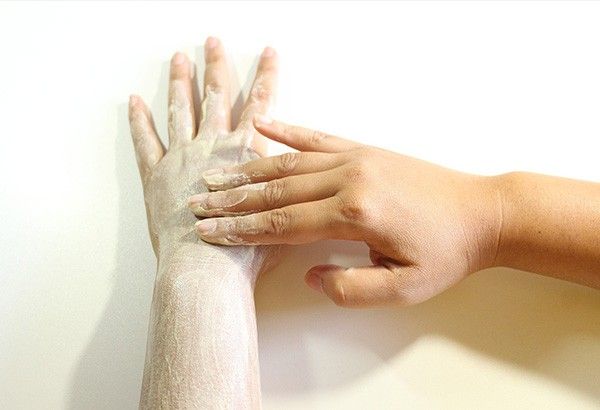Dermatologist reveals habits that can cause skin damage

MANILA, Philippines — Skincare has never been more accesible with an abundance of beauty vlogs and products readily available on the Internet and in physical and online beauty stores.
With these readily available to anyone with Internet connection and money to spare, board-certified dermatologist Dr. Iza Encarnacion advised the public to be cautious about using products and doing procedures on the skin.
Dr. Encarnacion took up Medicine at the Ateneo School of Medicine and Public Health, her internship at The Medical City Ortigas and Ospital ng Makati and spent her Dermatology residency at the East Avenue Medical Center. She also did her Medical Dermatology and Phototherapy Fellowship at Mount Sinai Hospital in New York City from 2019 to 2020. She did her Clinical Dermatology and Basic Research Fellowship at Osaka Metropolitan University from May to November 2022.
As the body's largest organ and an important barrier, it is important to take religious care of the skin.
1. Sparing use and reapplication of sunscreen
Applying sunscreen that has at least sun protection factor (SPF) 30 should be an everyday habit.
Dr. Encarnacion said that since the sun's rays can penetrate glass and inside the house, it is important to keep the skin protected. It is also important to reapply sunscreen every two to four hours especially when one is outdoors.
2. Indiscriminate use of hydroquinone
The United States Food and Drug Administration said hydroquinone is one of the ingredients added to skin-lightening products that limits the skin's production of melanin, which is the pigment that is responsible for skin color.
The US agency said it has received reports of serious side effects from the use of Hydroquinone. These include rashes, facial swelling and permanent skin discoloration (Ochronosis). In the US, skin-lightening products that have Hydroquinone are not approved for over-the-counter sale.
"'Di ba uso 'yung Hydroquinone? You can also use it for three to six months at a time. Because if not, it will cause rebound hyperpigmentation or Ochronosis. Irreversible na 'yun. For products for hyperpigmentation, watch out for ingredients because not all can be used for a long time," she said.
In the Philippines, in accordance to the provisions of Republic Act No. 3720 or the Foods, Drugs, Devices and Cosmetics Act, the use of Hydroquinone in products have strict guidelines.
- " All preparations containing less that or equal to two percent (2.0%) Hydroquinone are to be classified as home remedies and therefore can be sold without the supervision of a pharmacist. Provided however, that labeling as to its proper use is adhered to;
- "All preparations containing more than two percent (2.0%) but less than three percent (3.0%) Hydroquinone are classified as over-the-counter drugs. All preparations containing more than 3.0% Hydroquinone are considered prescription drugs. Appropriate labeling as to its proper use, and warnings as to its possible adverse effects, must be indicated;
- "All preparations containing less than or equal to twenty-five hundredths percent (0.025%) of Tretinoin (Retinoic Acid) are classified as home remedies and need not be dispensed under the supervision of a pharmacist, provided however, that labeling as to its proper use, is adhered to;
- "All preparations containing more than 0.025% but less than or equal to 0.05% Tretinoin are classified as OTC drugs. Preparations containing more than 0.05% Tretinoin are considered prescription drugs. Appropriate labeling as to its proper use and warnings as to its possible adverse effects must be indicated;
- "Combinations of Hydroquinone and Tretinoin provided they do not individually exceed the maximum amounts for each active component of 2% for Hydroquinone and 0.025% for Tretinoin, are also classified as home remedies, and therefore need not be dispensed under the supervision of a pharmacist. Provided however, that labeling as to its proper use, is adhered to."
3. Use of scrubs or beads
While scrubs and cleansers with beads can condition one to feel cleaner after a session in the bathroom, it does not necessarily help the skin.
"Our skin serves as a barrier from environment and also protects the thermal regulation of the body. It has a lot of uses. So gentle cleansers are enough to clean your skin. There's no need to vigorously rub or scrub your skin," said the dermatologist.
She also stressed the importance of applying lotion after bathing because it moisturizes and serves as the second barrier of the skin.
RELATED: Summer 2023: Celebrities' beauty essentials, hair trends



















